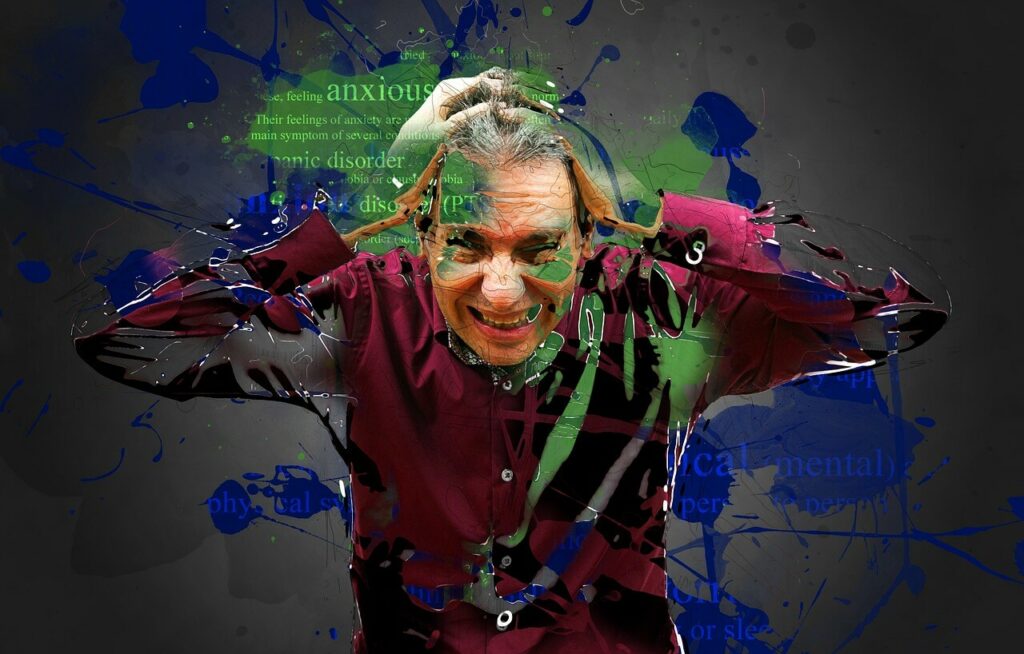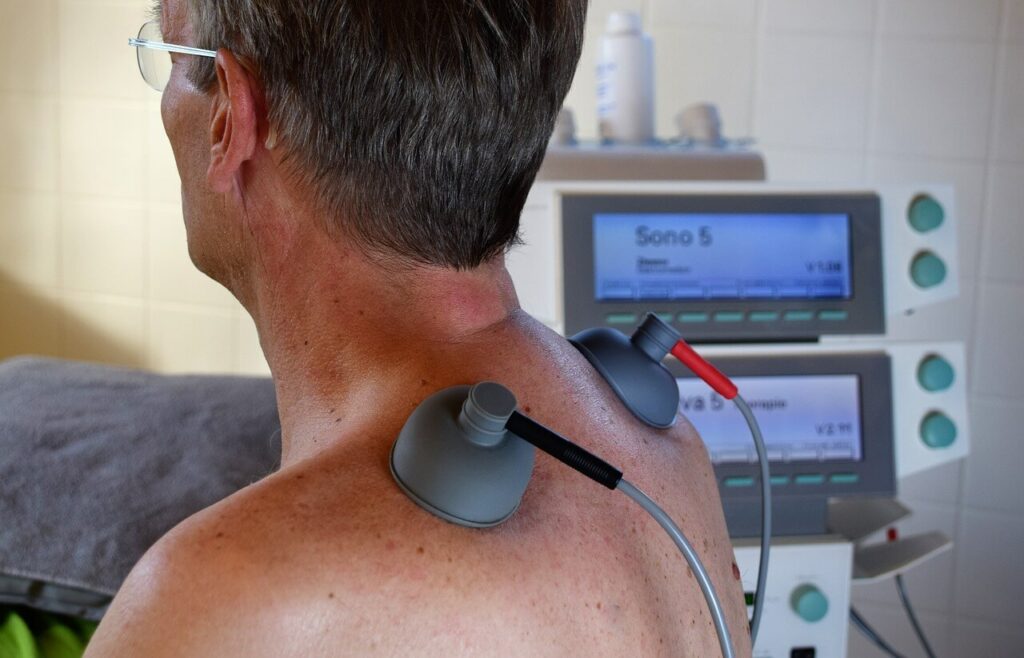Psychosomatic Illness: Uncovering the Link Between Mental Health and Physical Health
Is it possible that the way we think and feel could affect our physical health? Does mental health affect your physical health? Could many of the ailments we suffer from be psychosomatic (psychosomatic illness = caused by mental factors)? The answer, according to many experts, is yes.
The concept of psychosomatic wellness focuses on the brain-mind-body connection. It highlights that mental well-being plays a vital role in physical health. This link between mental health and physical health is becoming increasingly important in holistic health approaches.
Understanding this connection could be crucial for anyone seeking a more holistic approach to health. By addressing mental and emotional well-being, we can potentially prevent or reverse some of these psychosomatic conditions. In this blog post, we will explore how to identify psychosomatic illness. Moreover, we will discover what steps you can take to improve both your mental and physical health.

Psychosomatic Illness: Definitions
What Is Psychosomatic Illness?
Psychosomatic illness refers to physical symptoms caused or worsened by emotional or psychological factors. Chronic aches, digestive issues, or fatigue that seem to have no clear medical cause often have an underlying psychological component. According to the psychosomatic illness definition, these physical ailments often stem from stress, anxiety, negative thought patterns, or unresolved emotional trauma. These emotional issues can manifest physically, leading to ailments that are hard to treat through traditional medicine alone.
Mind-Body Connection Definition
The mind-body connection is the concept that mental and emotional states significantly influence physical health. As Joe Dispenza explains, negative thought patterns and unresolved emotions can create a feedback loop that leads to psychosomatic diseases. This cycle of stress, if not addressed, can cause chronic physical symptoms. The relationship between stress and illness is well documented. It highlights how prolonged mental distress can lead to psychosomatic disorder symptoms like digestive issues, fatigue, or chronic pain.
What Is a Stress-Related Illness?
Stress-related illnesses are conditions triggered or worsened by chronic stress. For instance, Dr. Bruce Lipton explains that stress influences gene expression, potentially contributing to various diseases. Stress initiates the body’s “fight or flight” response, releasing hormones like cortisol and adrenaline. When these hormones are elevated for too long, they disrupt the immune system, lead to inflammation, and contribute to psychosomatic symptoms. For example, chronic stress has been linked to increased risks of cardiovascular diseases, digestive disorders, and even autoimmune conditions. The longer these stress responses remain unaddressed, the more likely they are to manifest as psychosomatic illnesses.
The Role of Stress in Psychosomatic Illness
Chronic stress causes the body to remain in a state of heightened alert, which eventually wears down physical systems. According to Bruce Lipton, up to 95% of diseases may have psychosomatic origins due to the persistent strain stress places on the body. This reveals the profound relationship between stress and illness, emphasizing that mental health does affect your physical health. Recognizing and managing stress is crucial for both prevention and treatment of psychosomatic conditions.
Understanding psychosomatic illness and its connection to emotional health is key to achieving holistic wellness.

The Psychosomatic Connection: How Emotional Health Affects Physical Health
Imagine visiting multiple doctors for persistent physical symptoms like chronic headaches, digestive issues, or muscle pain. However, every test comes back normal. The frustration grows, but there’s one possibility often overlooked: the symptoms could be psychosomatic. They could be driven by your mental and emotional health rather than any detectable physical ailment. Many people experience this, unaware that their emotional well-being is directly impacting their physical state.
Psychosomatic diseases manifest when the mind causes or exacerbates physical symptoms. Whether caused by stress, trauma, or anxiety, psychosomatic symptoms are real and can significantly affect a person’s quality of life. While modern medicine has made tremendous advances, it is increasingly recognized that treating the mind is equally important when addressing physical illness.
The Science Behind the Mind-Body Connection
The mind-body connection is supported by the biopsychosocial model. This model posits that biological, psychological, and social factors all play a role in our overall health. It highlights that physical illness isn’t just a matter of biology but is deeply intertwined with psychological well-being and social environments. For instance, an individual facing chronic stress may experience worsened physical conditions even if the root cause appears to be biological.
Examples of Psychosomatic Conditions
Several physical ailments are heavily influenced by stress and emotional well-being. While these conditions have a physiological basis, mental health factors such as anxiety, depression, or chronic stress can trigger or exacerbate them:
- Irritable Bowel Syndrome (IBS): IBS is a gastrointestinal disorder often linked to stress and anxiety. While the digestive system is affected, emotional health plays a significant role in triggering flare-ups.
- Chronic Pain: Conditions like fibromyalgia and back pain are worsened by emotional stress. Tension in the muscles from anxiety can lead to long-term discomfort.
- Headaches: Stress-induced headaches or migraines are common in individuals with heightened stress levels, even in the absence of a physical health condition.
- Fatigue: Constant mental or emotional stress can lead to overwhelming exhaustion. Even when there is no detectable physical cause, fatigue can significantly lower a person’s quality of life.
- Skin Conditions: Stress can aggravate skin conditions such as psoriasis, eczema, and acne. Stress-related flare-ups often occur during times of high anxiety or emotional distress.
While these psychosomatic disorders have a physical component, their symptoms are often worsened by emotional health factors like stress. A holistic approach to health—one that acknowledges the relationship between stress and illness—is key to effective management and recovery.

Expert Perspectives on Psychosomatic Illness
Historically, Sigmund Freud was one of the earliest proponents of the connection between emotional health and physical illness. Freud’s theory of conversion disorders posited that emotional conflict could convert into physical symptoms, such as numbness or paralysis. This could happen when the mind couldn’t consciously process the distress. This laid the groundwork for psychosomatic disease research, which today focuses on understanding how emotional health affects physical health in a variety of ways.
Dr. John Sarno, a pioneer in modern psychosomatic medicine, introduced the concept of tension myositis syndrome (TMS). Sarno believed that repressed emotions like anger or guilt could cause chronic pain, particularly in the back. He showed that many physical ailments, often treated through surgery or medication, could be relieved by addressing the underlying emotional causes.
Contemporary Perspectives
Several contemporary thought leaders have further explored the relationship between mental health and physical wellness.
Dr. Joe Dispenza believes that by changing thought patterns, individuals can initiate healing processes within the body. His work in neuroscience shows that through meditation and mental conditioning, we can alter the neural pathways associated with chronic pain and disease. These conditions are often reinforced by negative thought loops.
Dr. Bruce Lipton, a cellular biologist, emphasizes the power of the mind-body connection through the lens of epigenetics. He argues that our beliefs and emotions can directly influence gene expression. Lipton’s groundbreaking research demonstrates how our mental and emotional states can either enhance or impair our immune system, thereby influencing our overall health. This supports the idea that stress and illness are deeply intertwined.
Marisa Peer, an internationally acclaimed therapist, reinforces the importance of addressing negative beliefs stored in the subconscious mind. According to Peer, these deeply ingrained beliefs manifest as physical symptoms unless addressed. By using therapies like Rapid Transformational Therapy (RTT), she helps individuals identify and reverse negative mental patterns that contribute to psychosomatic diseases.
While not every illness is purely psychosomatic, these experts highlight how crucial mental well-being is to our physical health. Stress and emotional turmoil often worsen physical conditions, even if they aren’t the root cause. By focusing on mental and emotional health, we can potentially prevent or reduce the severity of psychosomatic symptoms.
Opposing Views in the Medical Community
Although there is compelling evidence linking emotional health to physical well-being, not all experts agree on the extent to which illnesses are psychosomatic. Traditional medical practitioners emphasize that many diseases have concrete physiological causes that cannot be attributed to stress or emotional factors alone. This has led to some skepticism regarding the psychosomatic model.
For instance, critics argue that psychosomatic illness should not be a “catch-all” diagnosis for symptoms that are difficult to explain medically. Physical symptoms, even when exacerbated by stress, may still require medical treatments or interventions. It’s essential to strike a balance in understanding the relationship between stress and illness while ensuring that genuine physical symptoms aren’t dismissed as “all in the head.”
However, even within the traditional medical field, there is growing recognition that stress and mental health factors can worsen many physical conditions. Psychosomatic disorder symptoms, while difficult to diagnose, are increasingly considered valid, especially when the emotional component of illness is evident. Thus, while mental health may not be the sole cause of physical disease, addressing it remains a critical part of the overall treatment plan for a patient’s well-being.
By acknowledging the nuances of the mind-body connection, medical practitioners can offer more comprehensive and personalized care, helping patients manage both the emotional and physical dimensions of their health.

Preventing and Reversing Psychosomatic Illness
Stress Management
Managing stress is critical in preventing the onset of psychosomatic illness. Mindfulness techniques, such as deep breathing, meditation, and mindfulness for stress, have been shown to reduce cortisol levels and improve mental clarity. Research shows that the relationship between stress and illness is significant—prolonged stress increases the risk of developing chronic conditions like high blood pressure, digestive disorders, and tension headaches. Mindfulness and relaxation exercises help regulate the nervous system, reducing the likelihood of these psychosomatic symptoms.
Exercise
Physical activity is a powerful tool for both mental and physical well-being. Regular exercise releases endorphins, the body’s natural stress relievers, which counteract the negative effects of stress on the mind and body. Studies consistently show that exercise not only reduces stress but also promotes emotional resilience, helping people better manage psychosomatic wellness and preventing the manifestation of stress-related illnesses.
Sleep
Sleep plays a pivotal role in the recovery and regulation of both mental and physical health. Lack of sleep contributes to elevated stress levels, impairs cognitive function, and weakens the immune system, increasing the risk of psychosomatic disease. Quality sleep is essential for maintaining balanced mental health, which in turn reduces the likelihood of developing stress-related physical symptoms.
Cultivating Positive Emotions
Positive emotions like happiness, joy, and gratitude act as buffers against stress and illness. By fostering these emotions through activities like social connection, gratitude journaling, and engaging in enjoyable hobbies, individuals can crowd out negative emotions like anxiety or anger. Research supports the link between happiness and a strong immune system, illustrating how cultivating positive feelings can prevent the onset of psychosomatic disorders and stress-related illnesses.
For more on cultivating happiness, check out our article How to Cultivate Positive Emotions and download your free guide 3 Ultimate Steps to Sustainable Happiness.

Therapy
Mental health therapies like Rapid Transformational Therapy (RTT), cognitive behavioral therapy (CBT), and mindfulness-based interventions can target the root psychological causes of physical ailments. By addressing unresolved trauma, limiting beliefs, and deep-seated emotional stress, RTT and other therapeutic approaches help alleviate both mental and physical symptoms. These methods empower individuals to shift negative thought patterns, heal emotional wounds, and release the stress that contributes to psychosomatic disease.
Treating Mental Health to Improve Physical Health
The link between mental health and physical health is undeniable. Addressing mental health issues is a crucial step toward alleviating physical symptoms associated with psychosomatic illness. Cognitive behavioral therapy (CBT), for instance, is widely used to identify and reframe negative thinking patterns that exacerbate stress and physical discomfort. Holistic treatments like yoga and meditation, combined with psychotherapy, work to heal both the mind and body. By treating mental health first, individuals often experience a reduction in psychosomatic disorder symptoms, proving that emotional health affects physical health in profound ways.
By incorporating stress management techniques, engaging in physical activity, and seeking therapeutic interventions, individuals can take control of their emotional and physical well-being, ultimately preventing and reversing psychosomatic illness.
How We Can Help with RTT Therapy
At 4HappyU, we specialize in helping individuals overcome limiting beliefs and psychosomatic illnesses through Rapid Transformational Therapy (RTT). This powerful therapy helps resolve the mental and emotional conflicts causing stress, anxiety, and physical symptoms. By addressing the root cause of these issues, RTT facilitates deep healing from within, promoting not just emotional well-being but physical recovery as well.
RTT is unique in its approach because it combines hypnosis, cognitive behavioral therapy, psychotherapy, and neuro-linguistic programming. It taps into the subconscious mind, where unresolved traumas and limiting beliefs reside. By reprogramming these deeply rooted thoughts, RTT empowers individuals to overcome obstacles they may not even realize are holding them back. For those suffering from psychosomatic illness, the connection between their emotions and physical health is often profound. RTT helps break this cycle by addressing the emotional wounds at the root of their physical conditions.
Real-Life Cases: Stories of Transformation
RTT has helped countless individuals overcome chronic illness by addressing underlying mental health issues. One such case is that of Marisa Peer, the founder of RTT, who has used this therapy to heal herself from significant physical challenges. Marisa Peer has openly shared how she overcame fertility challenges and even cancer through RTT. By reprogramming her mind and addressing her emotional traumas, she was able to reverse her physical symptoms. She thus demonstrated the profound power of the mind-body connection.
Another inspiring example is a colleague, who used RTT alongside lifestyle changes to overcome multiple sclerosis (MS). This individual had been living with the debilitating symptoms of MS for years. However, by identifying and addressing the emotional triggers tied to the disease, she was able to see improvements in her condition. RTT helped them reduce the stress and anxiety that had exacerbated their symptoms, allowing for a remarkable recovery.
These real-life stories serve as powerful testaments to the transformative potential of RTT in treating psychosomatic illnesses and improving overall psychosomatic wellness.

Ready to Transform Your Life?
Are you are struggling with chronic pain, fatigue, or unexplained physical symptoms that may have a psychosomatic root? If so, RTT might be the answer. By addressing both your mental and physical well-being, this therapy can help you achieve lasting transformation. Are you ready to heal from within? Book your free consultation today to start your journey toward a healthier, more fulfilled life!
Concluding Thoughts on Psychosomatic Illness and Wellness
The mind and body are deeply connected, and most illnesses have a psychosomatic element. By managing stress, cultivating positive emotions, and seeking therapy, we can prevent and reverse many psychosomatic conditions. Recognizing the link between mental and physical health is crucial for addressing health issues holistically.
Be mindful of your stress levels, and take your mental health seriously to avoid potential physical problems. If your physical symptoms may have mental roots, it’s time to address them with a comprehensive approach to well-being.
Resources
The information in this article is grounded in scientific research. If you’re interested in specific studies, feel free to reach out to us.
For daily doses of joy, positivity, inspiration, and motivation, be sure to follow us on Instagram.
Za naše bralce v Sloveniji
Če vas zanima več o psihoterapiji in iskanju trajne sreče, preberite naslednje članke: Psihoterapija Obala, 5 ključev do trajne sreče in notranjega miru, Najboljši psihoterapevti v Sloveniji: Kako se hitro spopasti s stresom, Psiholog v Kopru: Kako odpraviti težave s psihoterapijo in RTT terapijo, in Psihoterapija Online: Prednosti in učinkovitost terapije na daljavo.


